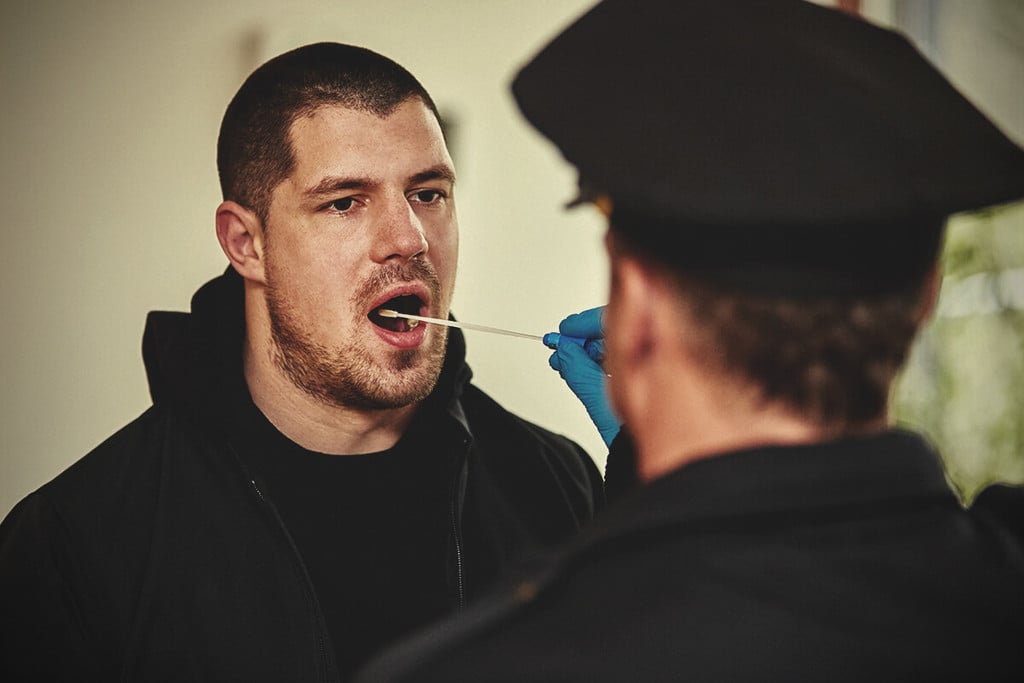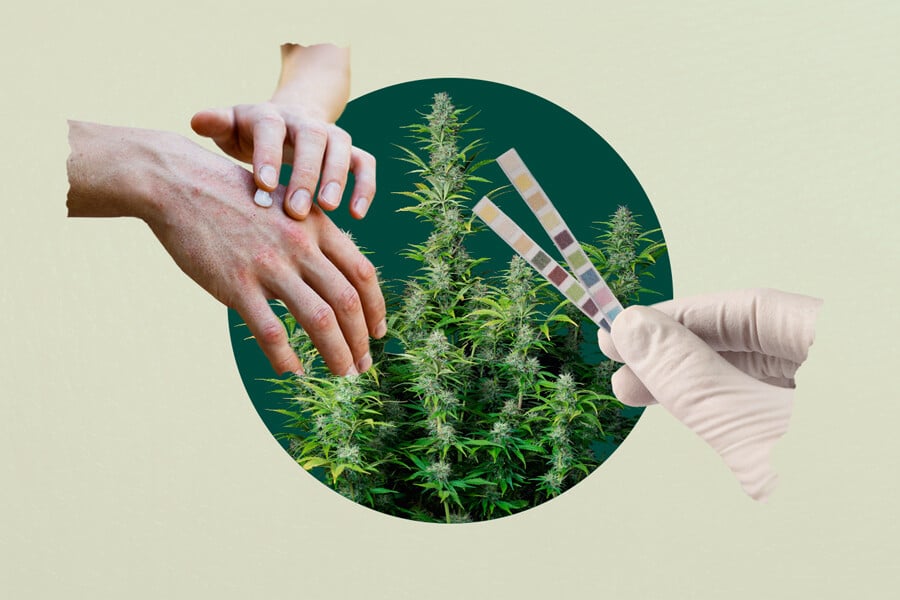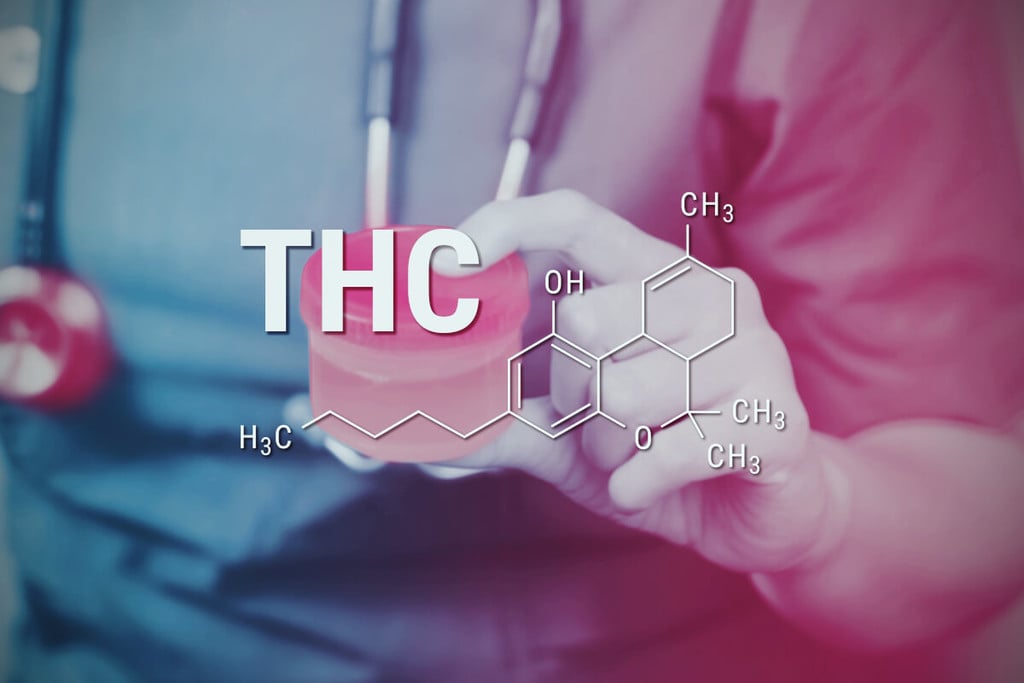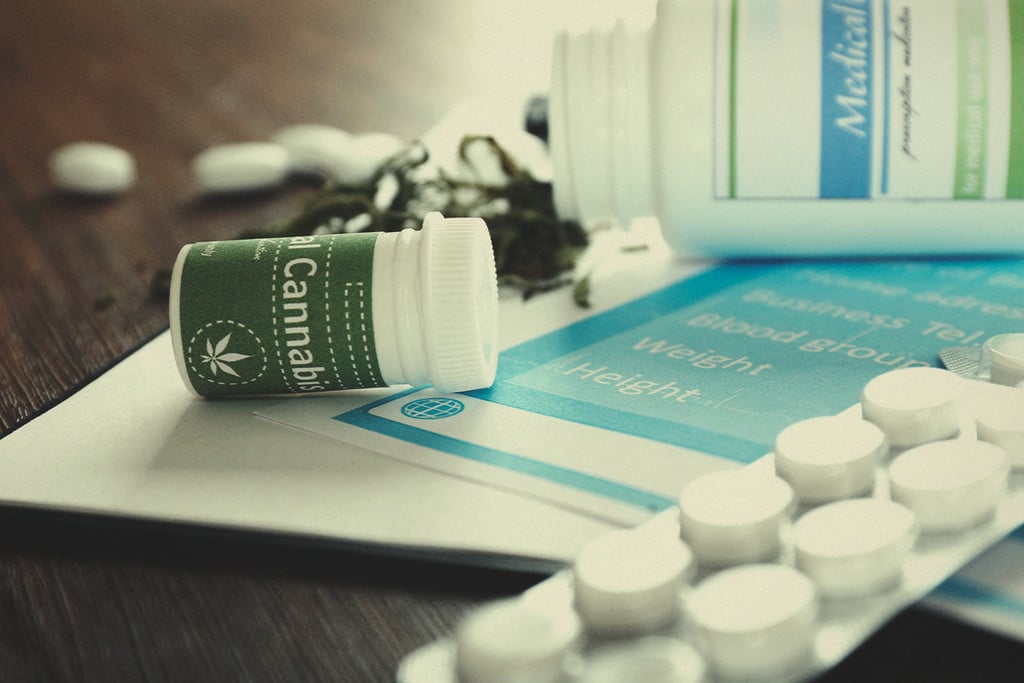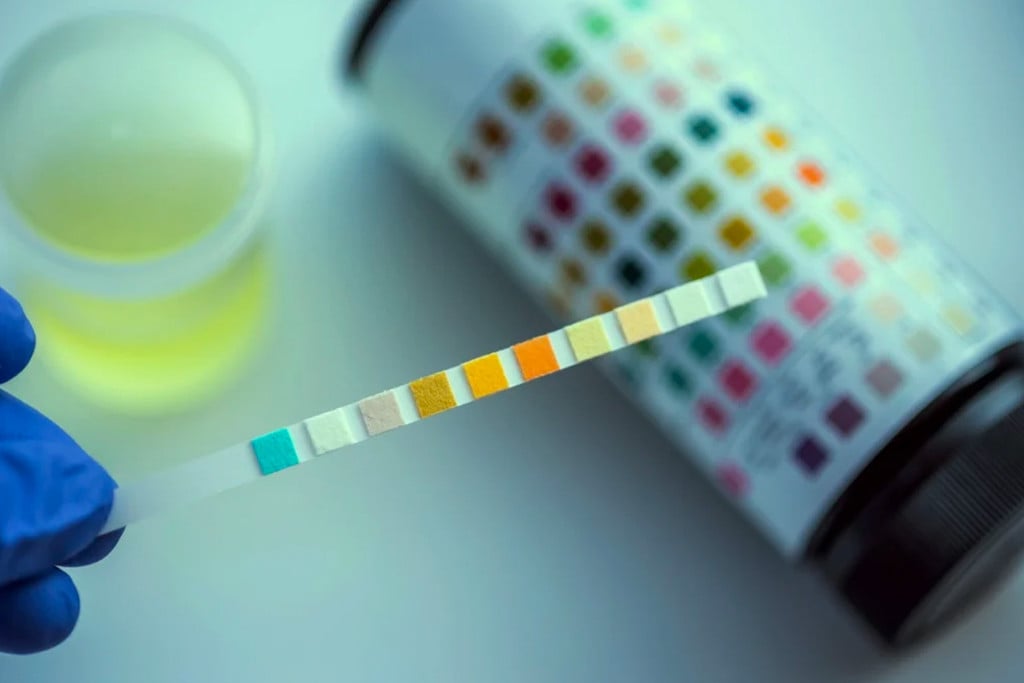.

Can THC Released From Body Fat Make You Feel High?
Cannabis flashbacks, though rare, have been reported. Here we look into them, and investigate whether THC stored in fat cells might cause individuals to feel high weeks or even months after last consuming.
Contents:
When we take drugs, we expect to feel high. However, we don’t expect to feel the effects days, weeks, or certainly months after consuming them. Though rare, some people do report these so-called “flashbacks”.
Here we investigate how cannabis is stored in the body, and whether this could have some relation to user reports of experiencing the effects of cannabis long after consuming it.
Can You Feel High Without Taking Anything?
LSD is famous (or infamous) for purportedly causing flashbacks. Though a contested phenomenon, they’re reported often enough to have entered the realm of general drug knowledge. But what about cannabis flashbacks? Considering how widely weed is consumed, its ability to “reappear” and make us feel high when we haven’t taken anything seems far-fetched. Yet, for some, it does appear to happen.
In a very small number of cases, chronic cannabis users may find that they feel high even when abstaining from the herb. This isn’t just the next day, either. Some people describe instances of feeling high weeks or months after they’ve quit smoking, prompting the question: why do I feel high when I’m not high?
Studies relating to this are scarce, though they do exist. But before we get into them, we must understand a little about how cannabis interacts with the body, and how it exerts its effects in the first place.
What Is THC?
Δ9-tetrahydrocannabinol—or THC—is the psychotropic compound in marijuana that produces the high. Though it’s by no means the only active cannabinoid in cannabis, it’s the one most relevant to our discussion.
THC binds with CB1 receptors, found most abundantly in the brain, mimicking the naturally produced endocannabinoid anandamide. This is chiefly how it exerts its effects. Although it takes longer to break down than anandamide, THC is still metabolised fairly quickly; else we'd be high for days! However, it remains in the body for much longer than its initial effects last.
How Long Is THC Detectable in the Body?
But surely after the high wears off, the THC has been cleared from our bodies? Not quite. THC is actually detectable long after the high has faded away.
Most cannabis drug tests rely on urine samples. In heavy users, samples can test positive up to six weeks (or more) after abstaining. But here’s the catch; they’re not actually testing for THC. The vast majority of weed drug tests look for THC-COOH, which is a metabolite produced in the liver following the consumption of THC. While it does indicate that THC has been present in the body, it does not indicate that it is at this moment.
More advanced tests that look for active THC (blood tests) are rarely used. When they are, they can detect THC for up to around one week after it was last consumed.
But if active THC is cleared from the blood after a week, how can people still feel high months later?
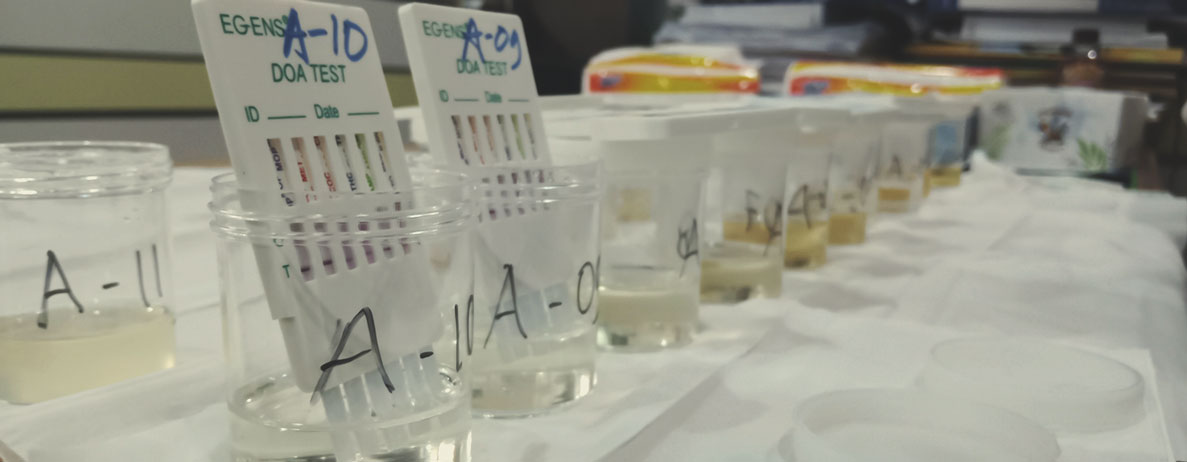
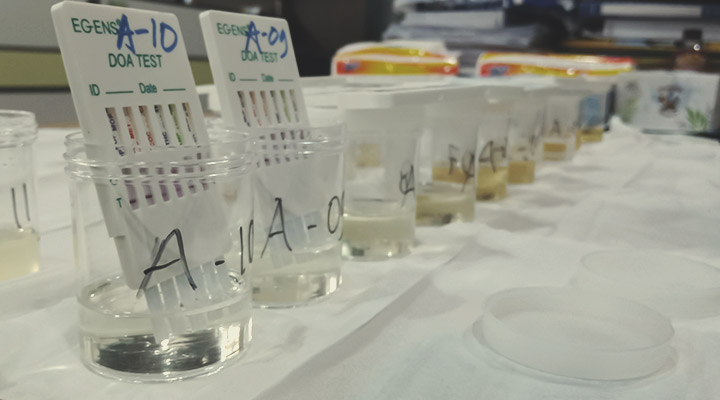
Why Do I Feel High When I Haven’t Smoked?
Various studies indicate that THC can be stored indefinitely in fat cells. And the more people smoke, the more THC gets stored. It seems that certain activities can trigger the release of stored THC, potentially leading to people feeling high when they haven’t smoked.
However, though it seems evident that THC is stored in fat for long periods of time, what is less clear is whether this can cause a high when released.
Below, we’ll examine some studies investigating THC storage and release.
Effects of Fasting on THC Release
A 2014 study by Wong et al.[1] investigated the behaviour of THC stored in the fat cells of rats, under different conditions. They hypothesised that if THC is indeed stored in fat cells, then activities that utilise fat would cause this to be released into the bloodstream. If accurate, the purpose of the research was to discover whether that release leads to observable behavioural changes.
The results showed that rats given 10mg of THC for five days, followed by a four-day “washout”, demonstrated both heightened levels of THC in blood plasma and behavioural changes. They were fasted for 24 hours, causing body fat to begin breaking down. Compared to the control, who were not fasted, they exhibited significant changes.
Two other groups were given a single dose of 5mg of THC, and were then either exercised or fasted. While both groups demonstrated heightened concentrations of THC in blood plasma, neither showed any observable changes in behaviour.
The fact that the fasted rats given a five-day course of THC were the only ones to show behavioural changes supports the anecdotal evidence that chronic cannabis users are most likely to experience potential flashbacks. Nevertheless, it cannot be taken as definitive proof.
THC Release During Exercise
Another study by Wong et al. investigated human participants[2]. In this study, 14 regular cannabis users completed 35 minutes of exercise after either a fed or overnight fasted state. Again, this was to test what happens when the body has to utilise its fat reserves.
The results showed that in each group, exercise increased THC levels in blood plasma. The fasting seemed to make no significant difference to THC levels. However, they acknowledged that the scale of the fasting may not have been enough to cause the body to begin utilising fat. Therefore, they concluded that exercise can cause body fat to release THC.
Behavioural changes were not recorded in this piece of research, and so it is not possible to ascertain whether the increase in THC levels could cause people to feel high.
THC Levels in Chronic Users
In opposition to the above findings, Westin et al.[3] found that neither fasting nor exercise in abstinent, chronic cannabis users caused an increase in THC levels in blood serum, or THC-COOH levels in urine samples.
This study used five participants from a drug detoxification ward. Urine and blood samples were taken from the first day of admission through to the seventh. On day three and six, they either fasted for 24 hours or spent 45 minutes on a treadmill. No differences in THC levels were observed on the exercise or fasting days compared to the others.


But — Why Do I Still Feel High?
The answer to this question, it seems, remains unknown. We do know that THC can be stored in fat, especially in chronic cannabis users. And some of the above studies could support the idea that THC is released back into the blood when fat is broken down. However, while they may support it, the scale of this research is by no means large enough to say that this is the case.
It’s also important to recognize that chronic cannabis use does more than leave THC in your body fat. Studies indicate that regular adolescent use of cannabis can cause permanent thinning of the frontal lobes[4]. Exactly what effect this has is not entirely clear. But the point is, cannabis use causes many changes within the brain, any of which could be contenders for making you feel high even when you’re not.
There is hope, though. Anecdotal reports of feeling high without taking anything do seem to have a time limit on them. It appears that, with continued abstinence, people will cease to experience this phenomenon.
- Fasting and exercise increase plasma cannabinoid levels in THC pre-treated rats: an examination of behavioural consequences - PubMed https://pubmed.ncbi.nlm.nih.gov
- Exercise increases plasma THC concentrations in regular cannabis users - PubMed https://pubmed.ncbi.nlm.nih.gov
- Can Physical Exercise or Food Deprivation Cause Release of Fat-Stored Cannabinoids? https://onlinelibrary.wiley.com
- Effects of Cannabis on the Adolescent Brain https://www.ncbi.nlm.nih.gov


























